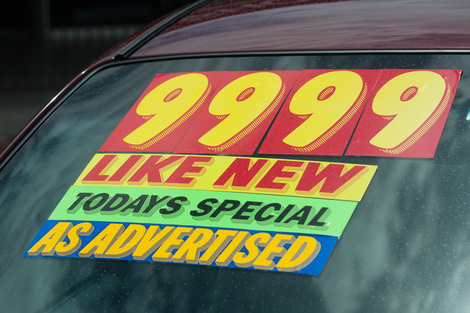Retailers tend to anticipate when buyers start bartering discounts, urging them to push prices higher to factor in any bargains that may be struck.
These are the central conclusions of new research by John Thanassoulis, of Warwick Business School, and David Gill, of the University of Oxford, published in the Economic Journal.
According to this study, bargaining is common, even for products that are generally regarded as having a fixed price, such as jewellery, travel bookings, and electronics.
While bargaining may allow a consumer to get a discount, this price reduction is usually factored in by businesses in anticipation.
The authors note that the same economics applies to the practice of giving discount vouchers (known as ‘couponing’ in the United States). In 2006, US firms issued 286 billion coupons, substantiating the popularity of bargain hunting as a sales phenomenon.
A mathematical model
Professors Thanassoulis and Gill built a mathematical model of bargaining markets to analyse the change in prices, profits and consumer welfare when the propensity to bargain among consumers changes.
Their study revealed that the list price a firm sets forms the price competition for some consumers who bargain with or receive a coupon from competing firms.
For example, if company X increases the list price of a product, the company’s competitors will then increase their lowest bargain prices, expecting to attract customers who may choose the rival over company X’s pricier offering.
Because of the increase in list price, company X’s bargain price will still be slightly higher than its rivals. However, anticipating all this, competing firms may see that profits will increase if they raise their list prices just like company X did, setting up a virtuous circle for the firms in which price levels are pushed up across the board.
“Although bargaining may be great for the individual who does it, it is bad for society as a whole when elevated to a market practice,” explains Professor Thanassoulis.
“The price levels rise for those stuck with list prices; and they also rise for all bargainers. Furthermore, consumers’ overall benefits are pulled down by bargaining as they are in effect bribed by reductions off an elevated list price into buying a product that is not their best match.”
Potential for collusion
The authors also show that couponing and bargaining facilitate collusion among firms.
According to Professor Gill, when consumers bargain, collusion is harder to break since any firm that tries to undercut the cartel’s price will lose customers who use its price to bargain for a reduction with other firms. “This reduces firms’ incentives to cheat on the cartel and so helps to make it more robust.”
Professor Thanassoulis concludes that bargaining and discount coupons ultimately backfire on the market mechanisms. “Increasing the proportion of bargainers raises list prices and bargained prices, which increases profits but makes consumers worse off.”






